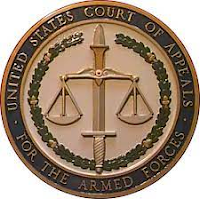Of the 238 petitions, the petitioner assigned issues in 143 cases (60.1%); Grostefon issues were personally asserted by the petitioner in 58 cases (24.4%); and 37 "merits" cases (15.5%) were submitted (i.e., with neither assigned nor personally-asserted issues).
If the Grostefon cases are combined with cases in which issues were assigned in a supplement to the petition, 84.5% of the petition caseload potentially came within the statutory requirement that good cause be "shown," as the legislative history of the UCMJ confirms, by the petitioner. Shouldn't the remaining 15.5% therefore not have been docketed or dismissed upon docketing, the court's decades-long practice to the contrary notwithstanding?

Interesting, I did not know you could submit a merits petition to CAAF. Are such petitions ever granted? I guess they would have to be granted on a specified issue, but it's unclear how that would even happen. Is someone at CAAF reading the whole record looking for issues to specify? Maybe reading only the lower court opinion?
ReplyDeleteScott, I'm so glad to see your comment and questions. CAAF has entertained "merits" petitions since the 1950s. They are very rarely granted, but from time to time CAAF will specify an issue. Ut will even grant review to correct typographical errors. Remember, once a petition is filed, even without assigned errors, the court's Central Legal Staff goes over the record, looking for errors. In my view, this is not right (after all, all petitioners have free appellate defense counsel), but it is the court's practice.
ReplyDelete